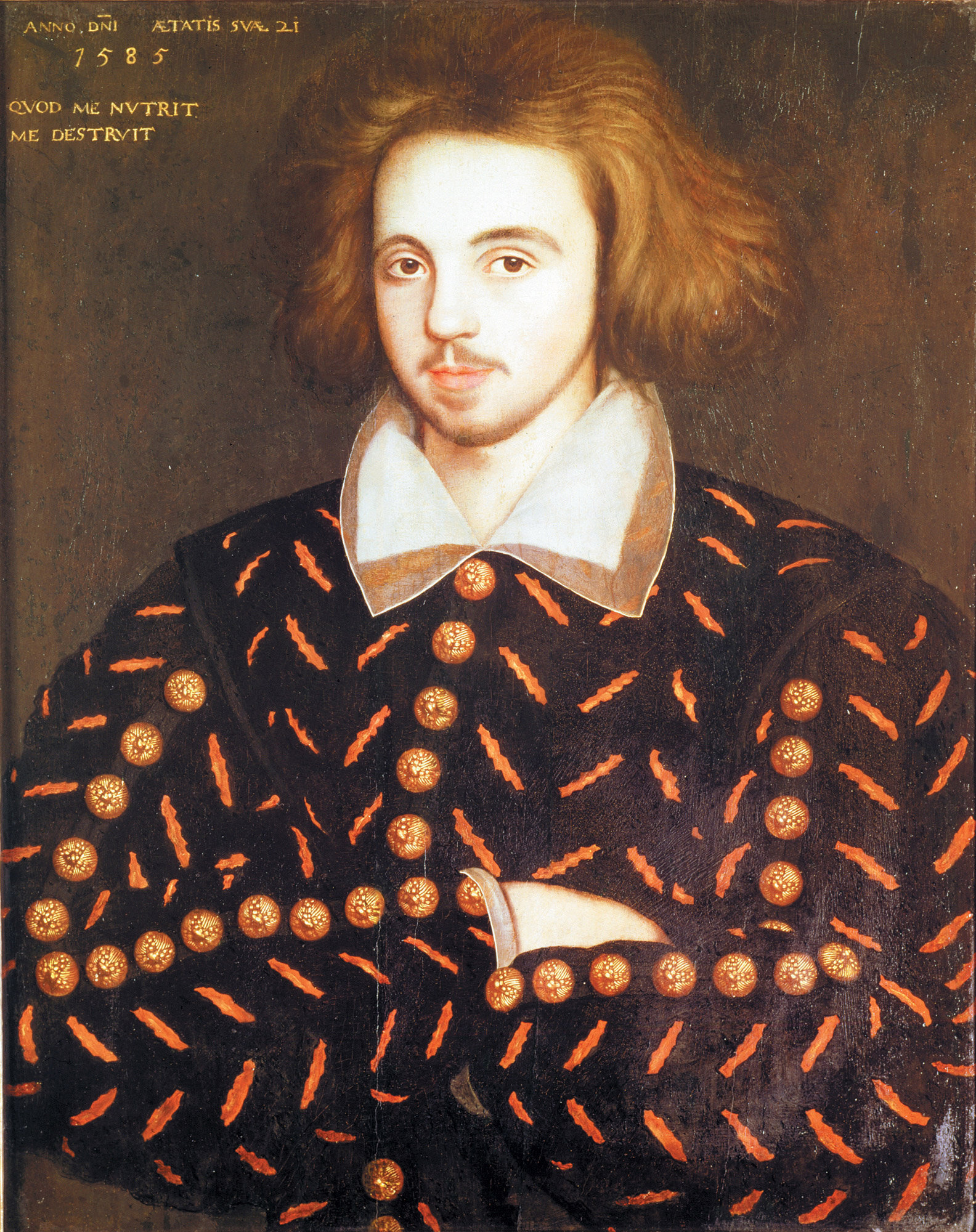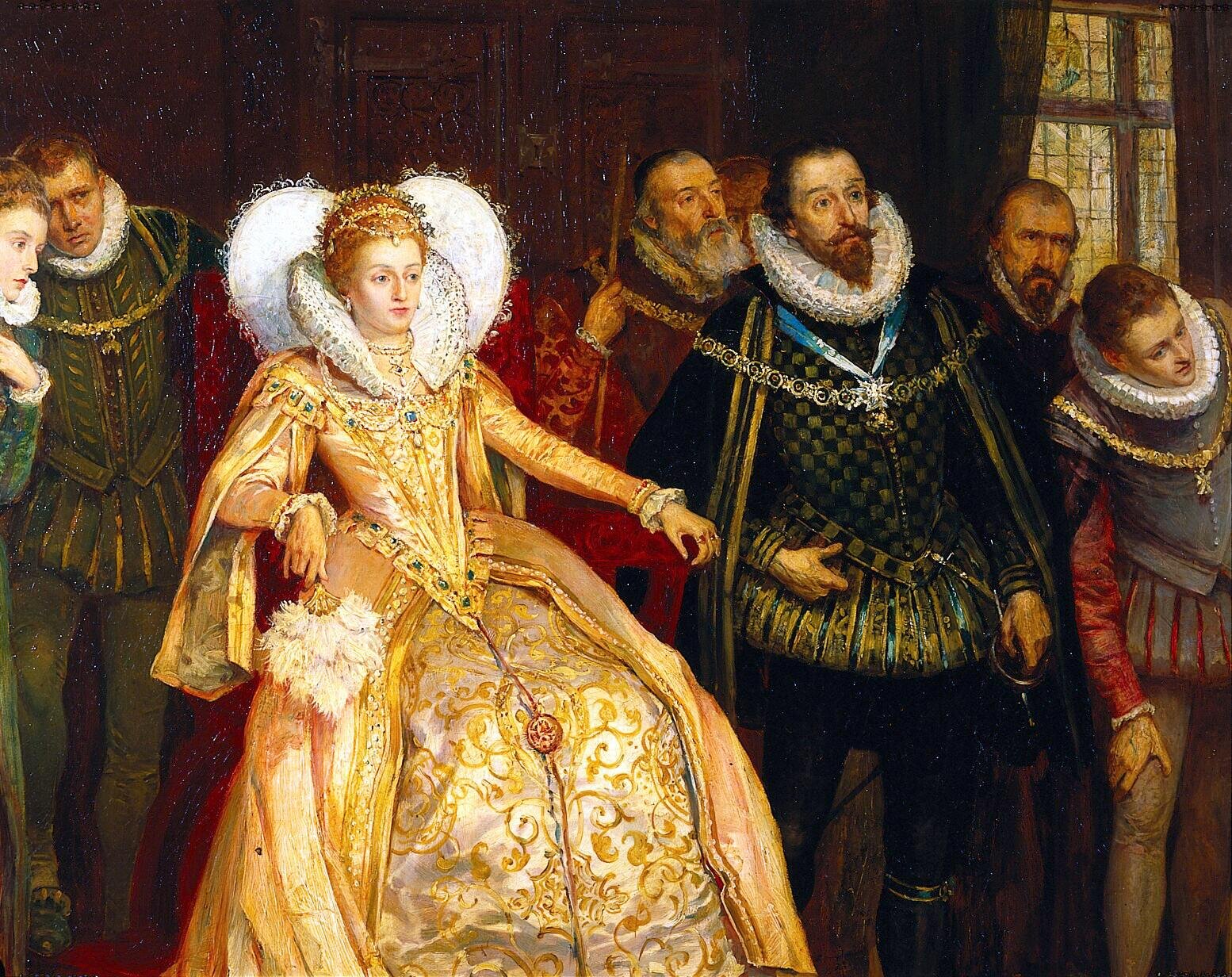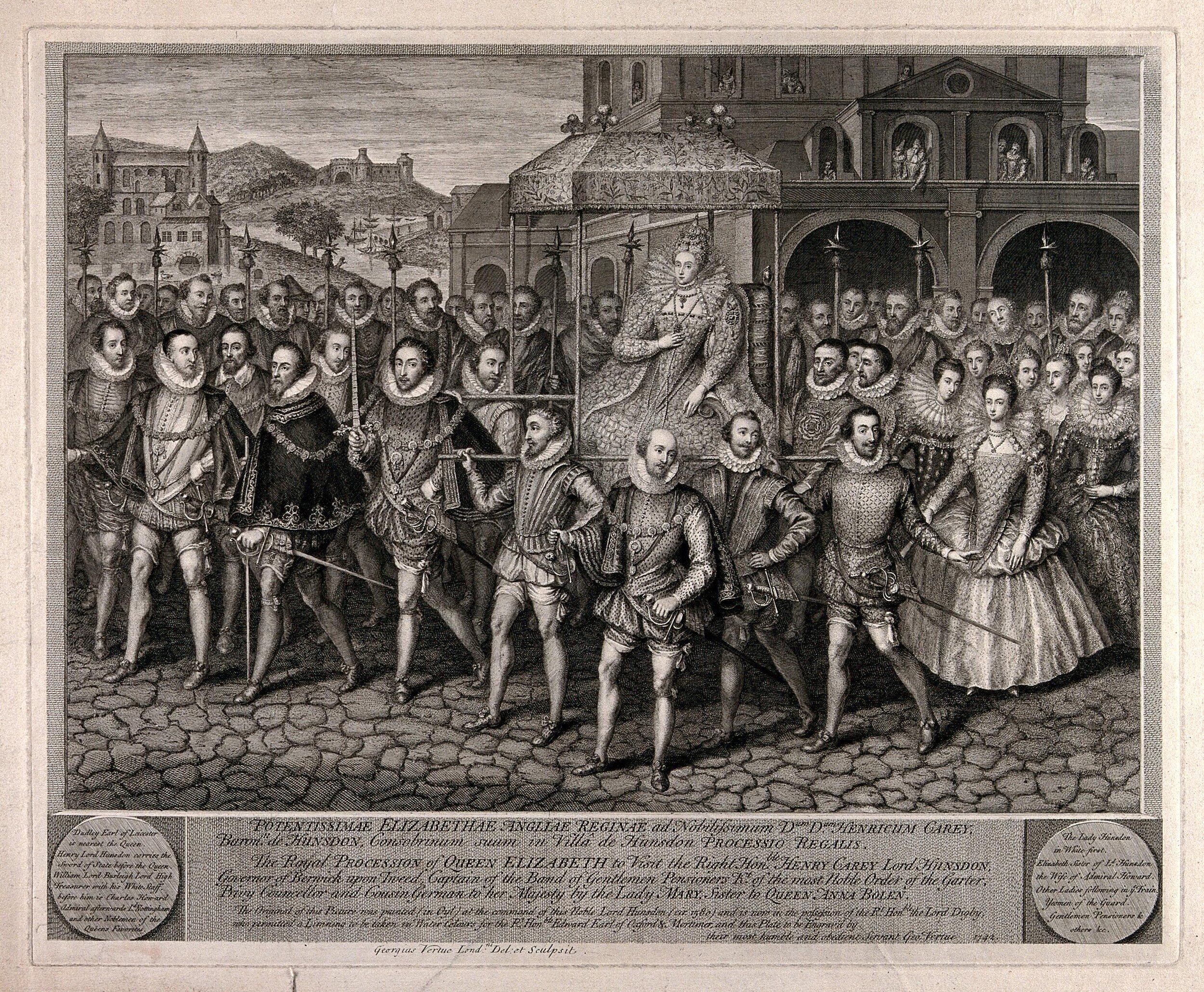The Death of Christopher Marlowe: Stephen Greenblatt (1593)
In this special episode to launch Season Five we are travelling back to Elizabethan England to witness one of the most mysterious events in literary history – the death of the playwright Christopher Marlowe in 1593.
*** [About our format] ***
In the early 1590s, Marlowe was the toast of London. Thousands flocked to the playhouses that lined the banks of the River Thames to see The Jew of Malta, Dr Faustus and Tamberlaine, among his other works. But writing was not Marlowe’s only source of income: he was also deeply involved in espionage, entrenched in the murky information networks that underpinned the vicious factions jostling for power at Elizabeth’s court.
The country at large was suffering from economic decline. Terrible weather and poor harvests caused widespread suffering, while there was continuing paranoia about the threat of Spanish invasion and concerns about who would succeed the ageing Queen. All this made for an atmosphere of volatility and fear.
In London, Protestant immigrants who had fled Catholic persecution on the continent were the focus of xenophobia and unrest; matters took an even darker turn in January, when a new outbreak of plague shut the city down.
***
Click here to order Stephen Greenblatt'’s book, Will in the World, from John Sandoe’s who, we are delighted to say, are supplying books for the podcast.
*** Listen to the podcast ***
Show notes
Scene One: 30 May 1593. The controversial Elizabethan playwright Kit Marlowe meets three fellow spies at a house in Deptford, a busy port to the east of the city of London. They spend the afternoon together and eat dinner, after which an argument breaks out and Marlowe is fatally stabbed.
Scene Two: 5 May. A placard is found pinned to a church used by Dutch immigrants threatening them with death if they did not leave the country and signed ‘Tamburlaine’. The authorities respond by arresting the playwright Thomas Kyd, who, under torture, implicates Christopher Marlowe.
Scene Three: January 1594. The Earl of Essex accuses the Queen’s personal physician, Rodrigo Lopez, of plotting to poison her, resulting in his trial and death.
Memento: An awareness of what can happen when dangerous populist, anti-immigrant sentiment flourishes during a pandemic.
People/Social
Presenter: Violet Moller
Guest: Stephen Greenblatt
Production: Maria Nolan
Podcast partner: Colorgraph
Follow us on Twitter: @tttpodcast_
Or on Facebook
See where 1593 fits on our Timeline
About Stephen Greenblatt
Stephen Greenblatt is Cogan University Professor of the Humanities at Harvard University. He is the author of fourteen books, including Tyrant: Shakespeare on Politics; The Rise and Fall of Adam and Eve; The Swerve: How the World Became Modern; Shakespeare's Freedom; Will in the World: How Shakespeare Became Shakespeare; Hamlet in Purgatory; Marvelous Possessions; and Renaissance Self-Fashioning. He is General Editor of The Norton Anthology of English Literature and of The Norton Shakespeare, has edited seven collections of criticism, and is a founding editor of the journal Representations. His many honors include the 2016 Holberg Prize from the Norwegian Parliament, the 2012 Pulitzer Prize and the 2011 National Book Award for The Swerve.
Location of Deptford, to the east of London, as shown on a nineteenth-century map
Source: Wiki Commons
London in the Time of the Tudors
Listen on YouTube
Complementary episodes
The City of Tears: Kate Mosse (1572)
In this episode bestselling author Kate Mosse takes us to the heart of one of the most dramatic and violent episodes in French history – the St. Bartholomew’s Day massacre.
Manifest Destiny: Professor James Shapiro (1845)
In this fascinating season three opener, we talk to the Shakespearian scholar Professor James Shapiro. He guides us back to the year 1845 to tell us where the concept of ‘Manifest Destiny’ came from and what it meant at that time.










